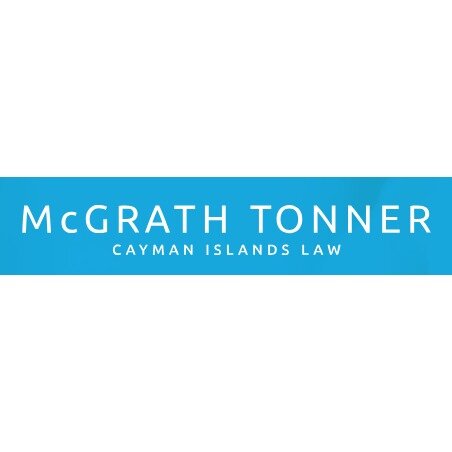Best Employment Benefits & Executive Compensation Lawyers in George Town
Share your needs with us, get contacted by law firms.
Free. Takes 2 min.
List of the best lawyers in George Town, Cayman Islands
About Employment Benefits & Executive Compensation Law in George Town, Cayman Islands
The field of Employment Benefits & Executive Compensation in George Town, Cayman Islands, is governed by a blend of local laws and international standards that aim to protect both employees and employers. The Cayman Islands are recognized as a leading international financial center, and this reputation extends to the management of employment benefits and compensation packages. Legal frameworks within this area ensure the fair treatment of employees, compliance with employment contracts, and the regulation of executive compensation schemes. With many multinational corporations having a presence in the Cayman Islands, there's a strong focus on aligning local practices with global best practices.
Why You May Need a Lawyer
Engaging a lawyer specializing in Employment Benefits & Executive Compensation may be necessary in various situations. Common scenarios include negotiating significant employment contracts, dealing with disputes regarding compensation or benefits, reviewing compliance with local labor laws, and customizing executive compensation packages for new enterprises. Employers often require legal advice to develop and implement benefit programs that comply with local regulations and meet strategic business goals. Employees, on the other hand, might need legal support to ensure that they receive all entitled benefits and fair treatment from their employers.
Local Laws Overview
Employment Benefits & Executive Compensation in George Town, Cayman Islands, are subject to several key legislative frameworks:
- Labor Law (2011 Revision): Governs general employment practices, including working conditions, maternity leave, and employee safety.
- Pensions Law: Mandates that employers provide certain pension benefits to employees, with specific requirements for contributions and eligibility.
- Health Insurance Law: Ensures that employers provide health insurance that meets the minimum prescribed benefits for their employees.
- International Compliance: Many firms are bound by international compliance norms, especially concerning executive compensation, to prevent unethical practices and financial misconduct.
Frequently Asked Questions
What are the mandatory benefits that employers must provide in the Cayman Islands?
Employers are required to provide pension benefits and health insurance for all eligible employees. The specifics can vary based on employment type and length of service.
Can an employee negotiate their executive compensation package?
Yes, employees in executive positions often negotiate compensation packages. It may be beneficial to have legal assistance to ensure the package meets market standards and adequately rewards performance.
Are bonuses and stock options regulated under Cayman Islands law?
While not strictly regulated, bonuses and stock options are typically outlined in employment contracts. Legal clarity helps in maintaining transparency and avoiding disputes.
What steps should I take if I believe my employment benefits are being mishandled?
If you suspect mishandling of employment benefits, consult with a lawyer specializing in employment law to review your contract and advise on possible actions.
How do executive compensation laws in the Cayman Islands compare internationally?
Executive compensation practices in the Cayman Islands often align with international standards to maintain a competitive, fair, and transparent approach ideal for multinational companies.
What happens if a company fails to comply with pension laws?
Failure to comply with pension laws can lead to penalties and legal actions. It’s crucial for companies to ensure they meet all statutory requirements.
Is health insurance compulsory for all employees?
Yes, employers in the Cayman Islands are legally bound to provide health insurance coverage to all eligible employees.
Are there any special considerations for expatriates regarding employment benefits?
Expatriates may have different considerations depending on their contract terms, but generally, they are entitled to similar employment benefits as local employees.
How do changes in employment law affect existing contracts?
Existing contracts may need to be revisited to comply with new laws, but it typically requires renegotiation and mutual agreement between parties.
What should an employer do to ensure compliance with employment benefit laws?
Employers should regularly consult with legal professionals to audit their employment practices and ensure compliance with the latest legal requirements.
Additional Resources
Several resources can provide valuable insights and assistance related to Employment Benefits & Executive Compensation in the Cayman Islands:
- Cayman Islands Chamber of Commerce: Offers resources and support for local businesses, including advice on employment laws.
- Department of Labour & Pensions: Provides guidance on labor-related matters, including benefits and executive compensation.
- Health Insurance Commission: Regulates the provision of health insurance in the Cayman Islands.
- Cayman Islands Monetary Authority (CIMA): Oversees financial services, including pension scheme regulations.
Next Steps
If you need legal assistance in the area of Employment Benefits & Executive Compensation in George Town, Cayman Islands, consider taking the following steps:
- Consult a Specialist: Engage a lawyer with expertise in employment and compensation law to understand your legal position.
- Review Documentation: Gather all relevant employment contracts and documentation to assess your situation thoroughly.
- Initial Consultation: Schedule a consultation to discuss your needs and the possible courses of action.
- Stay Informed: Keep abreast of any changes in the law that may affect your employment benefits and compensation.
Lawzana helps you find the best lawyers and law firms in George Town through a curated and pre-screened list of qualified legal professionals. Our platform offers rankings and detailed profiles of attorneys and law firms, allowing you to compare based on practice areas, including Employment Benefits & Executive Compensation, experience, and client feedback.
Each profile includes a description of the firm's areas of practice, client reviews, team members and partners, year of establishment, spoken languages, office locations, contact information, social media presence, and any published articles or resources. Most firms on our platform speak English and are experienced in both local and international legal matters.
Get a quote from top-rated law firms in George Town, Cayman Islands — quickly, securely, and without unnecessary hassle.
Disclaimer:
The information provided on this page is for general informational purposes only and does not constitute legal advice. While we strive to ensure the accuracy and relevance of the content, legal information may change over time, and interpretations of the law can vary. You should always consult with a qualified legal professional for advice specific to your situation.
We disclaim all liability for actions taken or not taken based on the content of this page. If you believe any information is incorrect or outdated, please contact us, and we will review and update it where appropriate.
















